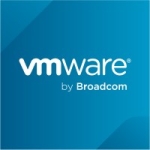What is most valuable?
It's pretty simple in my opinion. It's called out the box, and it's called support. Sometimes with the engineered systems based on the support agreement that you have with the vendor, sometimes you hear about problems with your system from them rather than your applications experiencing some issues, and you're having to log a support ticket with Oracle. I think that's huge.
How has it helped my organization?
The thing that attracts them to the two products but mainly the Exadata is the storage technology is revolutionary whether it's the only solution of that flavor on the market or not, I'm not familiar with. It's the storage solution, it's the speed, and it's the high availability. If somebody wants 5 or 6 9s worth of availability, a very good place for them to be is with one of Oracles engineered system solutions.
What needs improvement?
As is always the case with Oracle, when some late-breaking fancy technology gets under their radar, self-invented or perhaps something that they're picking up that they'd like to compete with from another vendor, they're all over it. I can't specifically think of anything myself. Outside I guess of speed and maybe the other two things I could think of are speed and speed, but I'm not suggesting that speed is an enhancement because there's anything wrong with the speed of the system now, but of course we always like to do things in four nanoseconds rather than seven.
What do I think about the stability of the solution?
I think I would probably give it a capital S. People here peripherally hear about informational stuff that may be going on in the cluster, but as far as catastrophic events that may happen with the cluster, a lot of them in some way, shape or form are not far from self-healing. I think that's a huge advantage of an engineered system.
What do I think about the scalability of the solution?
If you buy a quarter rack, you feel like you need more computing power, you upgrade to a half rack. You go to a 3/4 or a full rack. It's basically I guess we used to call it plug and play except a lot of us found it in the olden days, it was plug and pray. I think they've got that one licked to the max.
How are customer service and technical support?
Sometimes it's them calling us on behalf of one of our clients, but I would find that once one figures out the best way to work with their support organization in general, but their engineered systems support organization in particular, I can't think anything outside of a world class organization. I would admit that I don't have a lot, if any, experience with the competition, but I don't feel like I need any experience with the competition because of the way they do support those two products.
Which solution did I use previously and why did I switch?
A lot of the times it ends up being complaints from the user community, and difficulty with strategic activities that the system performs. If you're running a commercial off the shelf application against these engineered system, sometimes it's a little more complex to work with a third party vendor, to speed things up. Mainly it's complaints from the user community. You and I both know that if something takes four seconds all the time and takes seven seconds some of the time, all the people are going to remember is the seven seconds.
What about the implementation team?
I haven't done it on a hands-on basis, but I believe that what I mentioned at the beginning about out of the box is just that. Oracle from my recollection first tried to venture into some form of engineered system in the '90s with HP. It was a red box that you basically took out of the carton and plugged in. I think that's pretty much close to what once you brought it onto the network, exactly what you're going to do with their systems, so I thinks it's plug and play.
What's my experience with pricing, setup cost, and licensing?
Choosing a vendor: obviously cost, high availability, and the strength of the rack technology. It's a corner of the Oracle technology that basically not exactly gets reinvented, but the new features and the new ways of going about to do things and the capabilities of failover and all that is a huge concentration as the product matures, not that it is immature. I think that's a primary reason that people might consider looking at this. There's absolutely no doubt, it's not far from an upgrade basically being done on the fly. There's so many things that can be done online. The plague of course of the '90s and the early-2000s was downtime.
What other advice do I have?
Rating: I'd call it about a 12 out of 10. Of course you have to be able to afford the box. You have to be able to afford the configuration that you're going to be getting into. It's cost-effective for a lot of organizations, but I would rate the technology very high. Some of the specialized mechanisms that Oracle has put in place, especially with respect to Exadata and the late-breaking version of Exadata in particular.
As I said before, I'm not intimately or even somewhat peripherally familiar with the competition, but these guys know what they're doing, and my experience has been in the past that if Oracle ever plays catch-up in a technology spectrum with the competition, watch out. We all know that it's now cheap. It's affordable for a lot of organizations. If cost is going to be something, it's going to ultimately drive an organization's buy or no buy decision. The benefit after the money is spent and an ongoing outflow of cash to the vendor, if it makes business sense for somebody, I don't think they can be in a better place.
Make sure it's the right solution. Make sure that you do indeed need their real application cluster solution, which we affectionately call rack. Make sure it's right for you. It sounds corny, and it's sounds like a cliché, but it applied when I got started in IT in the 1800s, and it still applies. If it's cost-effective, go for it.
Disclosure: PeerSpot contacted the reviewer to collect the review and to validate authenticity. The reviewer was referred by the vendor, but the review is not subject to editing or approval by the vendor. The reviewer's company has a business relationship with this vendor other than being a customer: We're partners.
















good review